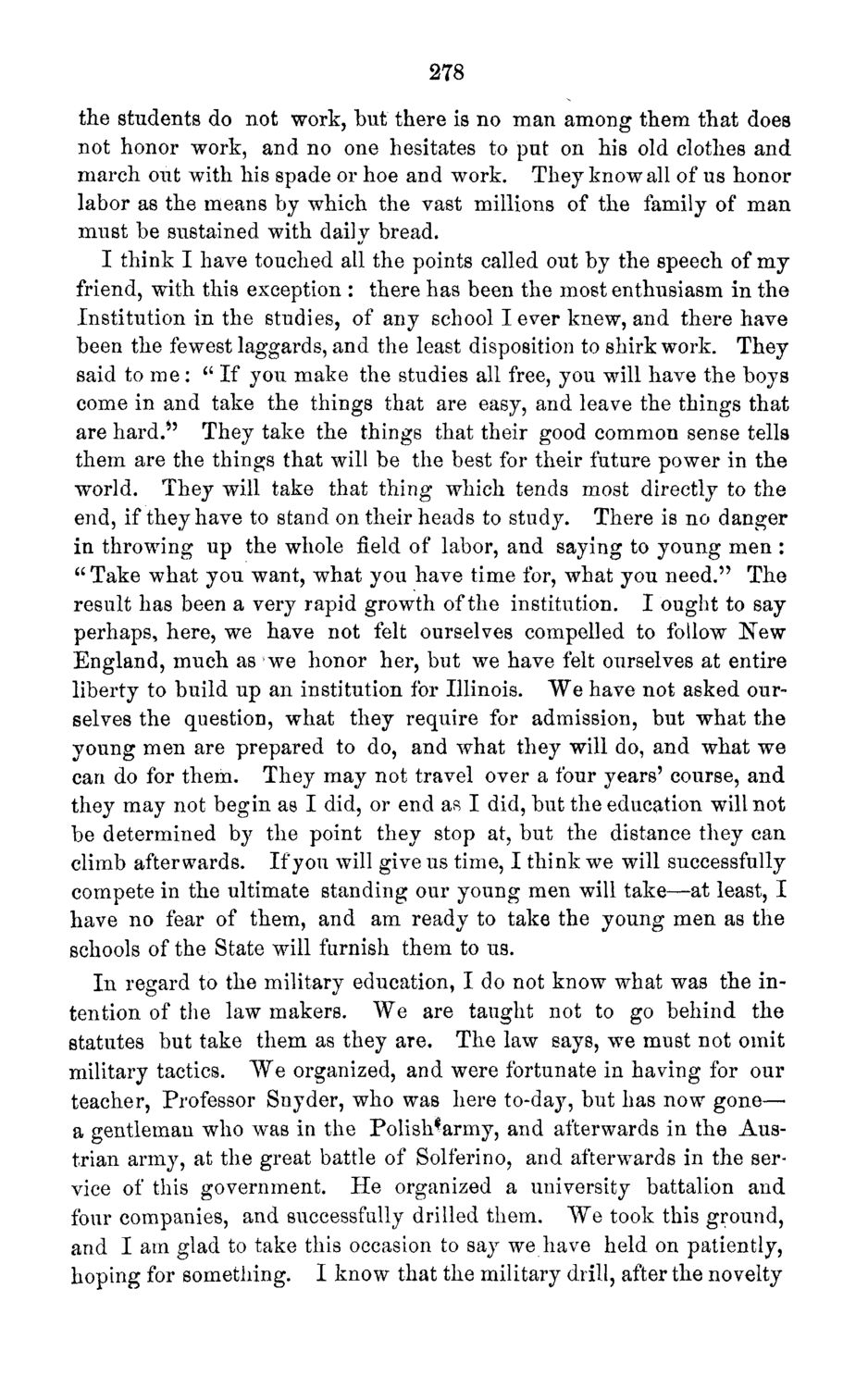| |
| |
Caption: Board of Trustees Minutes - 1871
This is a reduced-resolution page image for fast online browsing.

EXTRACTED TEXT FROM PAGE:
278 the students do not work, but there is no man among them that does not honor work, and no one hesitates to put on his old clothes and march out with his spade or hoe and work. They know all of us honor labor as the means by which the vast millions of the family of man must be sustained with daily bread. I think I have touched ail the points called out by the speech of my friend, with this exception : there has been the most enthusiasm in the Institution in the studies, of any school I ever knew, and there have been the fewest laggards, and the least disposition to shirk work. They said to m e : " I f you make the studies all free, you will have the boys come in and take the things that are easy, and leave the things that are hard.*' They take the things that their good common sense tells them are the things that will be the best for their future power in the world. They will take that thing which tends most directly to the end, if they have to stand on their heads to study. There is no danger in throwing up the whole field of labor, and saying to young men : "Take what you want, what you have time for, what you need." The result has been a very rapid growth of the institution. I ought to say perhaps, here, we have not felt ourselves compelled to follow New England, much as we honor her, but we have felt ourselves at entire liberty to build up an institution for Illinois. We have not asked ourselves the question, what they require for admission, but what the young men are prepared to do, and what they will do, and what we can do for them. They may not travel over a four years' course, and they may not begin as I did, or end as I did, but the education will not be determined by the point they stop at, but the distance they can climb afterwards. If you will give us time, I think we will successfully compete in the ultimate standing our young men will take—at least, I have no fear of them, and am ready to take the young men as the schools of the State will furnish them to us. In regard to the military education, I do not know what was the intention of the law makers. We are taught not to go behind the statutes but take them as they are. The law says, we must not omit military tactics. We organized, and were fortunate in having for our teacher, Professor Snyder, who was here to-day, but has now gone— a gentleman who was in the Polish^army, and afterwards in the Austrian army, at the great battle of Solferino, and afterwards in the service of this government. He organized a university battalion and four companies, and successfully drilled them. We took this ground, and I am glad to take this occasion to say we have held on patiently, hoping for something. I know that the military drill, after the novelty
| |